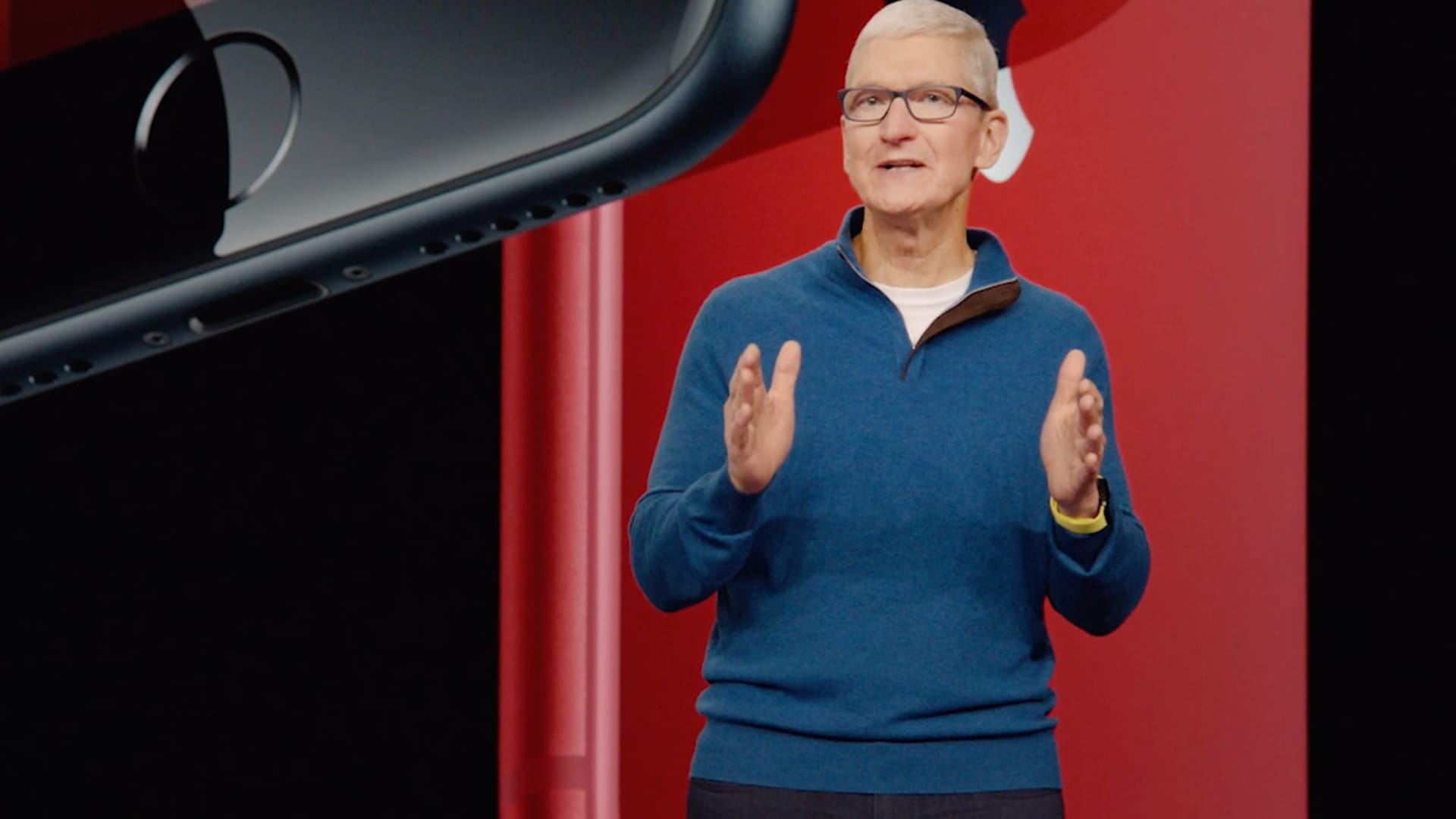
Tim Cook at the Apple launch event, March 8, 2022
Apple
Apple said on Thursday that developers with iPhone apps distributed exclusively in the South Korean App Store can request to use third-party payment systems instead of Apple’s in-app offering.
But doing so will come at a cost. Apple will require apps that take advantage of the new policy to report all sales to Apple each month and pay a commission of 26% on those sales, according to the company’s documentation.
Apple currently collects between 15% and 30% of app sales and in-app purchases, depending on whether the sale is a subscription or if it fits into a category of apps with reduced commissions.
The new policy follows a South Korean law passed last year and only affects the Korean App Store. But it could signal how Apple plans to handle third-party billing if required to by regulators or courts in other countries.
Apple said apps using alternative payment options will show a popup saying, “This app does not support the App Store’s private and secure payment system.”
It also warned developers that taking advantage of the new policy would mean they would have to handle refunds, purchase history, subscription management, and other issues on their own, rather than relying on Apple.
The company said it has the right to audit developers’ records of sales as part of its terms and conditions.
“This will allow Apple to review the accuracy of a developer’s record of digital transactions as a result of the entitlement, ensuring the appropriate commission has been paid to Apple,” according to Apple’s documentation.
Third-party billing was one of the primary points of contention in Apple’s lawsuit with Epic Games, which is currently being appealed. Epic wanted the ability to point users playing Fortnite on iPhones to the Epic website to buy in-game currency inside the app. That violated Apple’s rules and bypassed Apple’s commission.
During the trial, Apple said App Store’s payment system provided security and that Apple’s fees included developer tools, distribution and marketing on top of payment processing, and that it would be a substantial effort to build an alternative system to collect its commission from developers.
“We would have to come up with an alternate way of collecting our commission,” Apple CEO Tim Cook said during testimony at the trial. “We would then have to figure out how to track what’s going on and invoice it and then chase the developers. It seems like a process that doesn’t need to exist.”
Now it appears that Apple has built its alternative system in response to Korean regulators.
Epic supported the Korean law and its CEO Tim Sweeney appeared at a conference in Korea last year to praise it. Apple and Google, which operates the other major mobile app store, opposed it. Google is also collecting a commission of up to 26% from apps that use their own payments in Korea.
Apple faces additional regulatory challenges that could force it to take similar actions in other markets.
The European Union is currently discussing the Digital Markets Act, which would not only force Apple to allow third-party payment providers on the App Store but could open the door to third-party app stores on the iPhone. Apple is facing a similar situation in the Netherlands brought by the Dutch competition regulator that’s specifically related to dating apps.
Lawmakers in the U.S. are discussing antitrust bills that would prohibit companies like Apple from giving preferential treatment to their own services, which could force Apple to open up the iPhone to third-party app stores. Several states have also considered bills that would challenge Apple’s App Store billing exclusivity.
The App Store and fees from in-app purchases are a major source of profit for Apple and come with higher margins than hardware sales. Apple combines App Store revenue with other services, including subscriptions and warranties under services. In total, those areas supplied $69 billion in sales in 2021.
WATCH: TikTok should be booted from app stores because of data gathering




